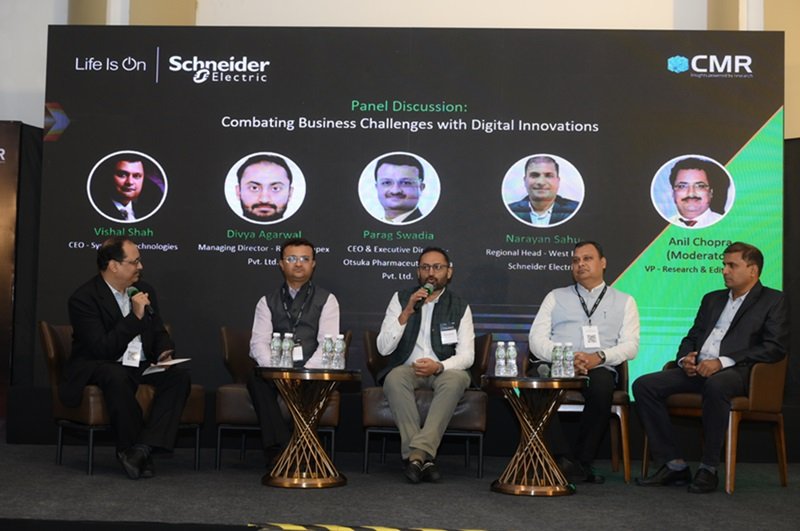In today’s rapidly evolving business landscape, the integration of digital technologies has become a strategic imperative for organizations of all sizes. To explore the potential of digital innovation in addressing contemporary business challenges, a panel discussion was held at Xcelerate 2024 Ahmedabad. The esteemed panelists, representing diverse industries and expertise, shared their insights on the transformative power of digital solutions.
Defining Digital Transformation
The discussion commenced with a fundamental question: What constitutes digital transformation? Parag Swadia, CEO of Otsuka Pharmaceutical India, emphasized the importance of data-driven decision-making. “Digitalization is about harnessing the power of data,” he stated. “Understanding both macro and micro data is crucial for navigating the complexities of today’s market.”
Divya Grewal, Managing Director of Radhe Impex, offered a broader perspective, defining digital as anything that involves computers or digital interfaces. She highlighted examples such as self-driving cars, online banking, and cryptocurrency as embodiments of the digital age.
Vishal Shah, CEO of Synersoft Technologies, introduced the concept of quantifiable benefits. He argued that for digital innovation to be meaningful, it must provide a clear advantage or efficiency gain. “Digitization should enable organizations to scale up without exhausting their resources,” he explained.
Overcoming Business Challenges with Digital Solutions
The panelists delved into specific business challenges and discussed how digital technologies can address them. Narayan Sahu, Regional Head of Schneider Electric, highlighted the role of digital solutions in remote monitoring and management. “Our EcoStruxure software allows businesses to monitor their IT infrastructure from anywhere, ensuring uninterrupted operations,” he said.
Compliance was another pressing concern raised by the panelists. Vishal Shah emphasized the importance of cybersecurity and data protection in today’s digital landscape. He cautioned that many MSMEs are unprepared to meet the stringent compliance requirements imposed by large enterprises and government bodies.
Parag Swadia shared an example of how digital innovation can enhance product efficacy. Otsuka Pharmaceutical developed a tablet with an embedded chip that tracks patient adherence to medication. This technology has proven invaluable in treating conditions like schizophrenia.
Divya Grewal discussed the application of digital tools in manufacturing. She explained how data loggers and ERP systems are essential for maintaining quality control, optimizing inventory management, and ensuring compliance with industry standards.
The Future of Digital Innovation
The panelists concluded the discussion by sharing their vision for the future of digital transformation. Parag Swadia emphasized the need for greater integration between different digital systems. “The biggest challenge today is compatibility,” he said. “As we move forward, we need to focus on seamless integration to unlock the full potential of digital solutions.”
Vishal Shah called for more tailored solutions for MSMEs. He highlighted the need for IT companies to develop products that address the specific needs and constraints of small and medium-sized businesses.
Divya Grewal expressed optimism about the continued growth of digital technologies. She predicted that artificial intelligence and machine learning would play an increasingly important role in various industries, from manufacturing to healthcare.
In conclusion, the panel discussion provided valuable insights into the transformative power of digital innovation. By leveraging data, automation, and emerging technologies, businesses can overcome challenges, improve efficiency, and achieve sustainable growth in today’s competitive market.
Watch the full session here: https://youtu.be/J_s5jZ-7lDg









